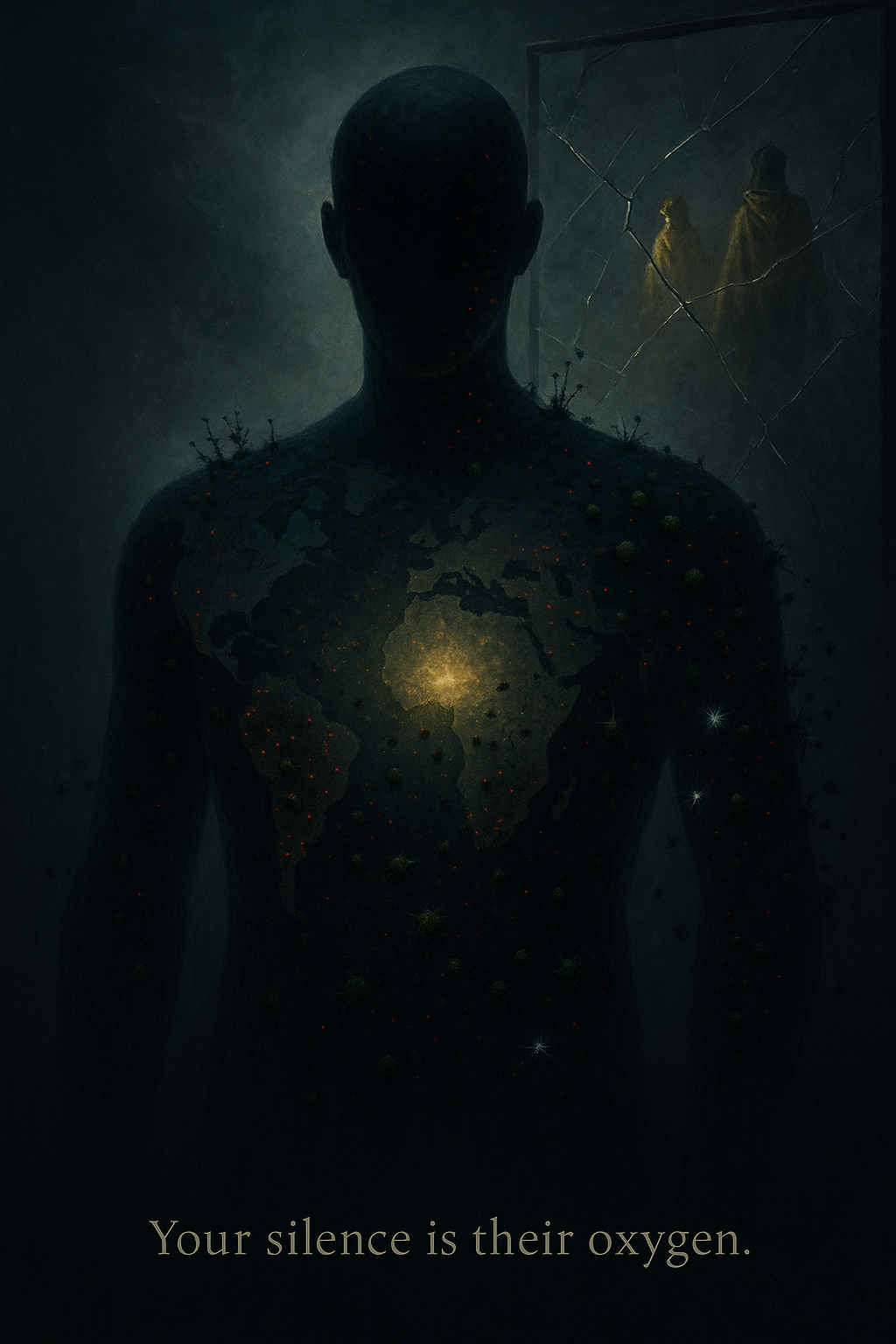“The world suffers a lot. Not because of the violence of bad people, but because of the silence of good people.” — Martin Luther King Jr.
There are people who live convinced that what they are doing is perfectly fine — even noble. In their own mirror, they appear justified. They build their logic carefully, wrapping selfishness in the cloak of necessity, greed in the guise of ambition, cruelty disguised as honesty.
But when the world watches, when the act leaves the small circle of their private justification, the truth glares back: it is wrong. Deeply wrong. Wrong enough to corrode trust, poison communities, and weaken the foundation of civilization.
The Germ Metaphor
Imagine the human body. Strong, vast, resilient. Yet even the smallest germs, when left unchecked, can slowly multiply, corrupting tissues and crippling vital organs.
Humanity is much the same. One person’s unethical act — corruption, exploitation, manipulation — might feel isolated, even invisible. But multiplied across thousands and millions who believe “it’s okay in my view,” these actions become epidemics.
“The evil that is in the world always comes of ignorance, and good intentions may do as much harm as malevolence if they lack understanding.” — Albert Camus
Like germs, such people don’t see themselves as destroyers. They see themselves as survivors, opportunists, or even heroes. But history shows that the greatest collapses — from empires to ecosystems — rarely come from sudden disasters. They come from slow, internal infection.
Examples from the World
- Corruption in Office: A small bribe accepted here and there may feel normal to the official. “It’s the system,” they say. But like germs, these small acceptances spread, until entire nations suffocate under the weight of mistrust.
- Exploitation in Business: A factory owner may underpay workers and justify it as “efficiency.” A landlord may overcharge tenants and call it “market rate.” To them, it feels rational. But to the world, it is parasitic — a germ feeding off the labor of others.
- Social Harm: On social media, individuals spread lies or hatred, convinced they are defending truth or identity. But step back, and you see contagion — one falsehood replicated, then weaponized, destabilizing entire societies.
Why It Matters
We cannot dismiss these people as “just individuals.” Germs, too, are microscopic. Yet their collective force can kill. In the same way, when harmful actions go unchallenged, they normalize. They spread. And eventually, they define the very culture we live in.
The frightening truth is this: most of these people are not aware. In their minds, they are “clean.” But the world sees their dirt. And if no antibodies — no truth-tellers, no challengers — rise against them, their infection will prevail.
The Antidote
The antidote to germs is not silence. It is recognition, exposure, and resistance.
- Speak when silence feels safer.
- Act when apathy whispers “not my problem.”
- Question when conformity tempts you to nod along.
Because every time good people resist, they act as antibodies in the bloodstream of humanity. They stop infection from spreading.
“The world is not destroyed by those who do evil, but by those who watch them without doing anything.” — Albert Einstein
Closing Reflection
If you ever wonder how civilizations collapse, look not at the meteors or wars. Look at the germs — the quiet destroyers — who believed their wrong was right, who thought no one would notice, who infected the world with their “okay in my view.”
And remember: your silence is their oxygen.
🔥 Important Takeaway:
Wrong rarely announces itself. It whispers, justifies, and normalizes. To save the world from its germs, each of us must choose to be the immune system — alert, active, and unwilling to let the infection spread.

